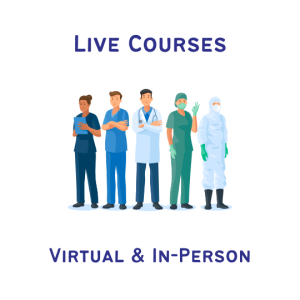
Published March 21, 2025 | Updated March 24, 2025
By Robin Som
I trained in general surgery in London, before undertaking fellowships in Vancouver, Cape Town and Coventry. I am currently a locum consultant in general and upper GI surgery in Galway University Hospital in the Republic of Ireland. My non-clinical interests are medical writing and leadership.
My journey towards completing an MBA started in a theatre coffee room on a grey Tuesday morning in Buckinghamshire. I had just taken my first steps onto the surgical training treadmill, as an ST3 in general surgery. One of the questions that all surgical trainees had to ask themselves back then – and still do – is whether to take time out of training and engage in a period of formal research culminating in a PhD. I was not keen on it.
I put it to my consultant as we waited for the elective aortic aneurysm to be anaesthetised.
“I looked through 15 CVs for the consultant vacancy yesterday,” he told me. “I immediately binned any that didn’t have a PhD.”
My heart sank to the soles of my surgical clogs. “But,” he added, “one of the candidates did have an MBA. And I thought, how interesting.”
And so did I…
What is an MBA?
MBA stands for Master of Business Administration. Though nominally a master’s level degree, it is significantly more challenging than a typical MSc or MA (and I have an MSc, so can confirm this!). This is because of the breadth of subjects taught and the speed at which the material is delivered.
An MBA provides the skills and knowledge needed to lead businesses and organizations. CEOs, captains of industry, and managers all covet it.
So why should you, NHS dogsbody and trainee, even think about signing up for one?
Why Should a Doctor do an MBA?
I’ll start by telling you why I did an MBA.
You can glean from my opening anecdote that I was looking for something to make me stand out from the crowd. I wasn’t aspiring to be the next Steve Jobs. But my consultant’s words piqued my curiosity. When I explored the MBA curricula, I was surprised by the range of subjects. Many of them resonated with my own interests:
- Innovation & Creativity
- Leadership
- Organizational Behaviour
In my spare time, I would devour podcasts and books and content on these topics.
None of these were taught in medical school, yet were so relevant to my daily practice as a trainee surgeon – in particular, anything to do with leadership or organizations. The more I investigated, the more I wanted it.
So, if you’re like me and have a wide range of interests outside of medicine, and are looking to bolster your portfolio or CV, an MBA might not be a bad idea.
However, maybe you do aspire to be the next Steve Jobs; or you want to build a healthcare business. You may be a surgeon with ambitions of a rewarding private practice as a consultant. Perhaps you want to be a partner in an inner-city general practice, or take up a senior leadership role within the NHS. An MBA would undoubtedly give you the tools to achieve these.
The degree will cost time and money. It therefore needs to be something that you will gain from in the long term. Though I started with the goal of improving my CV, this alone isn’t long term enough – once you’ve secured that consultant post, what next? Therefore, start by thinking about your long-term goals – what are your long-term goals as a clinician?
Some of you may be looking to pivot away from clinical practice. Certainly, if you wanted a career in business, finance, management, or consulting, many of your peers will have an MBA or a similar degree. Thus, an MBA would allow you to hold your own both in the job application process, and in the workplace itself.
An MBA would also be useful for those of you looking to convert side-hustles into your main source of income.
Different Types of MBA
The classic, 1-year full time MBA was the only version on offer for most of the 20th century. But recent times have seen a proliferation of subtypes. These can be classified into two broad categories:
- How the course is delivered
- Speciality focus
How the course is delivered
As well as the full time MBA, many business schools now offer a distance learning option, which can be completed from anywhere between 2 and 5 years. Material is delivered online during the semesters, and there are usually mandatory in-person sessions held a few times a year. These in-person sessions consolidate the online learning and allow for networking with your classmates. You may have to sit exams during these in-person sessions. The program I ultimately went for at Warwick Business School (WBS) followed this format.
Accelerated MBAs allow students to complete the course either in person or at distance in a shorter amount of time.
Specialty focus
There are a multitude of speciality MBAs e.g. executive or energy MBAs (for those with 10+ years working at executive level, and for those working in the energy industry). Several schools do now offer healthcare MBAs. My own MBA was a general one, but where possible, I steered all coursework and projects towards healthcare issues I was seeing in real life.
Entry Requirements and Fees
Still reading? I hope this is not the point where you lose interest…
MBAs are highly competitive and intense, and so it should not come as a surprise that entry is competitive and intense!
It’s a postgraduate degree, so once you’ve made it through medical school, you tick that box. However, many schools require that you have been in employment for 3 to 4 years, therefore many of you will need to be in core training at least.
Some programs will require candidates to sit the Graduate Management Admission Test (GMAT), a tough 2+ hour exam that tests literacy, analytical skills, and reasoning. However, many do not – my distance learning program at WBS still doesn’t.
You will need to demonstrate experience in leadership and management, either during an interview and/or in a personal statement. You will also need to outline your reasons for applying, and provide references.
One of the biggest barriers will be the fees. Full time MBAs will usually be more than £20,000; however, distance learning courses are cheaper. Many schools do offer scholarships and bursaries.
Which School?
When choosing an MBA program, consider what you can afford, and how much time you want to complete the program – are you going to take time away from clinical practice to do a full-time course? And if so, will you have to move to do it? Or will you continue to work as a medic alongside studying? The latter option may make the degree more affordable, as you will be earning as you study.
A less important factor is the ranking of the program. The ranking of MBA programs has become a niche field, and it is far from an exact science. Each publication uses its own methodology with subjective elements, and I do believe an MBA from any school remains an achievement. In the UK, the Financial Times rankings are considered the benchmark.
My Own Experience of the MBA
I undertook the distance learning MBA with WBS. I didn’t want to stop surgical training. I’d previously undertaken an MSc via distance learning, and revised for the MRCS whilst working full time, so was confident in my ability to balance studying and working.
I looked at the fees and my finances – with some extra locum shifts and the occasional dip into savings, it was affordable. I viewed it as an investment in myself. One application form and personal statement later, I was accepted!

The course kicked off with the first set of core modules – three of them per semester. This is something that differentiates an MBA from other master’s degrees: you must study several modules that require different skills at the same time, each with their own form of assessment.
In that first semester, we studied
- Accounting & Finance:
- very analytical with a need to understand mathematical concepts and proficient use of Excel
- assessed with an online exam
- Economics of Business:
- a mix of social science, maths, and psychology
- assessed with a long-form essay
- Marketing:
- psychology, history, social sciences)
- assessed by a 3-hour in-person examination consisting of short and long answer questions.
I became good friends with most of my study group. I got to meet them in person at the residential weeks, which consisted of:
Eleven modules, one dissertation, and three and a half years after the course began, I had an MBA!
My main advice for anyone who does embark on an MBA is unfortunately rather dull – simply, be organised. Have the important dates mapped out well ahead – deadlines, residential weeks – and always see how these fit in around nights, on-calls, and personal commitments.
I also advise choosing elective modules that you know you’ll enjoy. If you don’t enjoy maths and analysis, then avoid topics like Finance. My strengths lean more towards the humanities and these were so enjoyable that it didn’t feel like work; it was more akin to watching a great TED Talk!
Make the most of your study group and learn from them. Distance learning can be isolating. A lot of the material will be unfamiliar to those with degrees in medicine and life-sciences, but it won’t be to many of your classmates, as they will come from business, finance and management backgrounds.
What Will an MBA Entail?
Ok, so the fees and exams and interviews hasn’t put you off, and you now find yourself about to start an MBA program! What can you expect?
Most MBAs consist of 10 to 12 modules. Half of these will be core, mandatory modules that every candidate must do. The other half consists of elective modules, and the range is huge. It is one of the joys of the MBA. You can work to your strengths and interests.
There are “soft skills” subjects like Change Management or Strategic Advantage, and “hard skills” subjects such as Modelling for Management and Financial Analysis. You will be placed into study groups for each module, even for distance learning programs. There will be group work to be completed, which forms part of the final assessment for the module. Such groups were fun – I made friends for life from my study groups – but could be trying, if stuck in one that didn’t function well.
Some modules are also assessed by a written exam, or individual coursework. Wherever coursework had to be produced, I always steered it towards a real-life healthcare issue I was working through.
This culminates in a dissertation, which can be entirely of your own choosing – you can focus it on a business side-hustle or something you are passionate about.
MBA and the Alternatives: Advantages and Disadvantages
The workload and cost represent the biggest the disadvantages to completing an MBA, and it needs to be treated as a long-term investment in your career development, whatever path you choose. There are many alternatives – master’s or diplomas in management, for example, that will be shorter, and more flexible.
For those that don’t wish to be tied down to a course, then it is very easy to get your hands on virtually all the material delivered on an MBA as books, online content or podcasts. The advantage of enrolling into the degree means you’ll be tutored and have a forum to discuss ideas and the material.
One of the most touted advantages of an MBA are the networking opportunities. In fact, it goes beyond networking because you get the chance to develop deep relationships with people from a diverse range of professions – you will be studying with them every week for at least 1 year, working on group projects and coursework. They go from being classmates to tutors to potential professional colleagues. This will be an invaluable network whether you are a CT1 or an ST8.
| MBA | Alternative Degree in a related subject | Free MBA materials found online | |
| Cost in £ | 8,000 to 60,000 | 3,000 to 50,000 (expect to pay more for master’s level) | 0 to 500 |
| Duration | 1 – 5 years | 1 – 3 years | As long as you like |
| Networking opportunities | Plentiful. Network with a range of professionals Network with tutors and lecturers | Will depend on the subject – the narrower the focus, the less range of people you will work with | You will have to create your own! |
| Professional recognition | Considered highly prestigious and instantly recognised worldwide. MBA graduates have higher earning potential in particular industries | Commendable | None |
Advantages and disadvantages of MBA and the alternatives
What I Got Out of the MBA
I was looking for a competitive edge, and the MBA certainly gave me that. “I notice on your CV something very interesting; you’ve done an MBA? Tell me about that,” has been asked at every interview I have had for post CCT fellowships and consultant posts. I’ve been able to discuss with passion and enthusiasm the projects I undertook and what I learnt.
So, what are some of the projects I completed? I tried to steer all coursework towards real life work problems. For example, I used a committee I sat on as a case study for my Organisational Behaviour assignment. Using the material, I was able to recommend a re-structuring of the committee.
My dissertation looked at strategic planning for medical educational organisations, and was used by the Royal College of Surgeons of England in their Future of Surgery report.
And what did I learn? The most important thing the MBA gave me was the ability to look at myself critically; to understand my strengths and weaknesses as a leader, and where I fit in with healthcare organisations. The modules I got the most out of were Leadership, Organisational Behaviour and Strategic Advantage; the latter two giving me frameworks to understand healthcare at a meso and macro level.
Conclusion
Doing an MBA is life-changing. It should be viewed as an investment in your professional development, and understanding your long-term career goals will help you decide if it is worth it.
You will need to have a realistic grasp of your current circumstances with regards to time commitment and finances before applying. There is no doubt that even in an era where knowledge can be accessed for free, an MBA still opens doors and expands one’s horizons.
Useful links
Examples of MBA curricula from the London Business School:
https://www.london.edu/masters-degrees/mba/programme-content/core-courses
https://www.london.edu/masters-degrees/mba/programme-content/electives
Information on fees:
https://www.postgrad.com/business-schools/mba-program/mba-tuition-fees
Information on affordable MBA programs:













